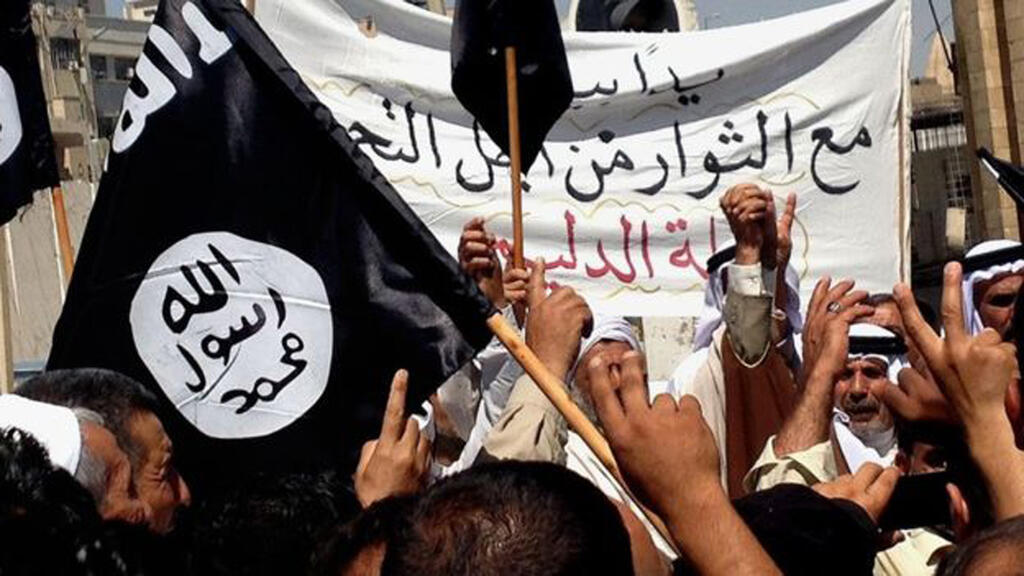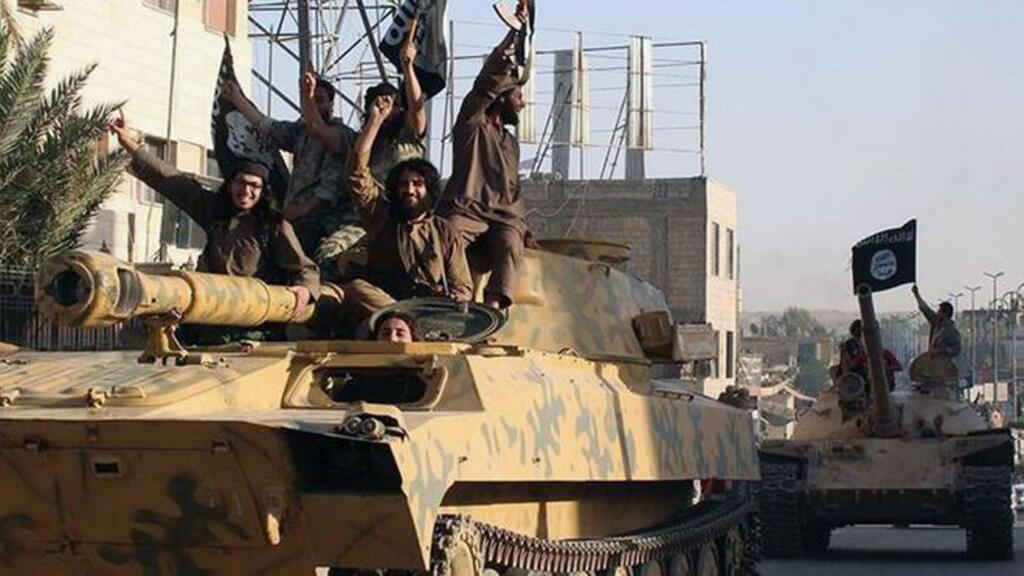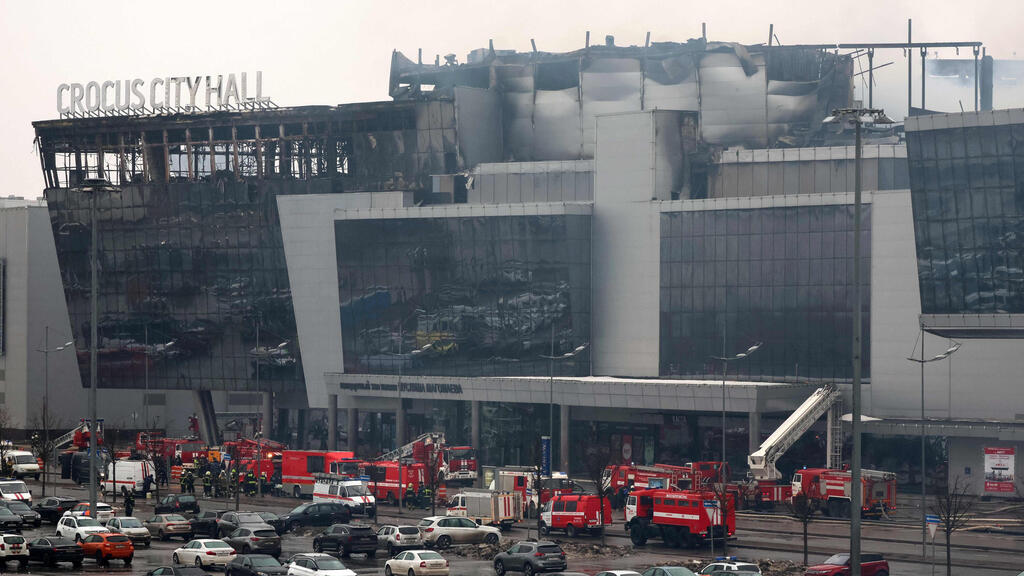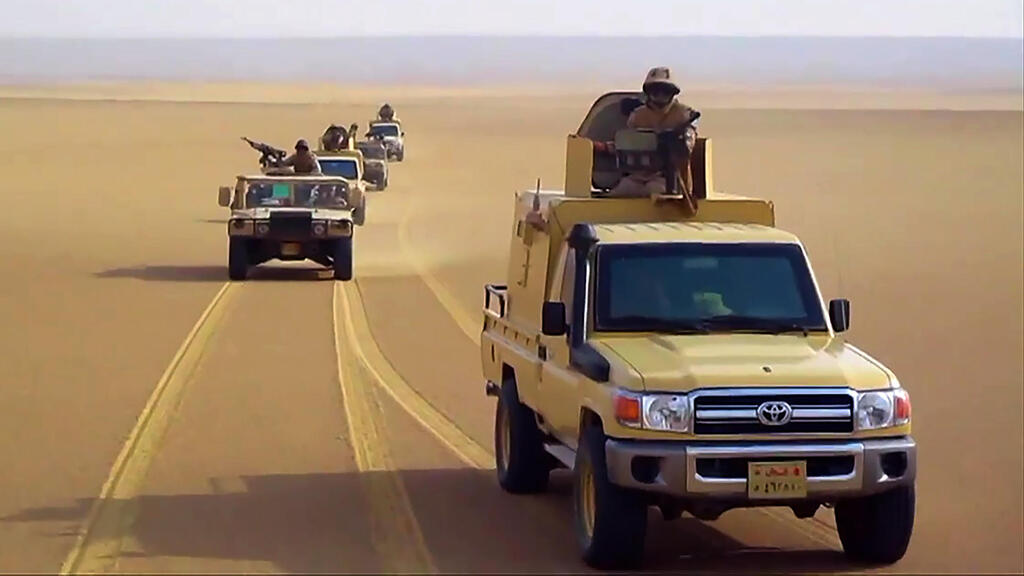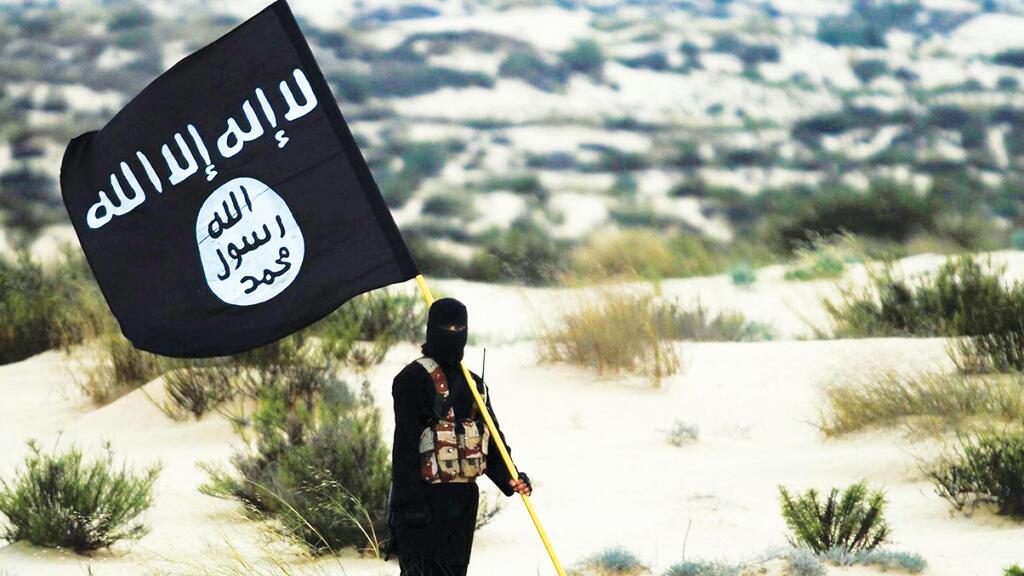Getting your Trinity Audio player ready...
About 65,000 people were supposed to fill the Ernst-Happel Stadion in the Austrian capital on August 8 and fulfill a dream: to see Taylor Swift, the biggest pop star in the world. Swift scheduled a leg of three concerts in the stadium, and thousands of Swift fans, known as Swifties, flocked to Vienna from all over the world, including from Israel.
None of them were supposed to notice the 19-year-old who planned to come to the first show in the guise of ambulance personnel, or his 17-year-old friend, who had just started working for a company providing services at the venue for the concerts.
What exactly were their plans? No one knows to this day. They may have wanted to enter the stadium itself or blend into the thousands of people who were supposed to gather at the entrance before the show. One of the assumptions was that they planned to cache the explosive devices ahead of time at various spots in the stadium and detonate them remotely. The 19-year-old main suspect admitted that he planned to kill himself and "a huge number of people."
Either way, with the amount of explosives they had, Taylor Swift's performance would have ended with dozens of people killed, hundreds of wounded and one creepy name, which Europe has somewhat forgotten: ISIS.
The CIA foiled the planned terror attack and alerted Austrian law enforcement. They rushed to cancel Swift's three concerts and started an investigation. Machetes, sharpened knives, thousands of euros and Islamic State propaganda materials were found in the basement of the 19-year-old's home in Ternitz, a small town located in Eastern Austria.
They also found devices and substances for assembling bombs as well as explosive device using TATP chemicals, which, by the way, is also used by the Palestinian terrorist organizations and is known as "The Mother of Satan."
The Austrian national with Macedonian roots quit his job and broke up with his girlfriend "so she wouldn't get in the way." He told his friends that he had "something big planned." The investigation revealed that he had pledged an oath of allegiance to the Islamic State.
His 17-year-old friend, as it turned out, had already managed to gather intelligence from inside and around the stadium. Another suspect, a 15-year-old with Iraqi roots who also pledged allegiance to Islamic State, was arrested with them but was not directly connected to the attack plans. He was placed on house arrest, and tight security was imposed around his residence.
The Austrians immediately realized that a mega terror attack was prevented: "The suspects arrested had a very concrete plan to cause a tragedy during the concert, and to leave a bloodbath in their wake," said Austrian Chancellor Karl Nehammer. "The situation is extremely serious," said Interior Minister Gerhard Kerner, stating that Austria had entered a state of high alert since October 7. "We are facing radical Islam that has been threatening us since Hamas attack on Israel," he clarified.
"Having our Vienna shows canceled was devastating and filled me with a new sense of fear,” Swift wrote in a statement, after realizing what could have happened. "I was also so grateful to the authorities because thanks to them, we were grieving concerts and not lives," she added.
The news of the foiled attack at Swift's show immediately brought Islamic State back into the headlines. The murderous organization suffered a series of setbacks after it was attacked in 2014 by Western coalition forces, with the cooperation of Kurds and Yazidis. In 2019, after the elimination of Islamic State leader Abu Bakr al-Baghdadi and losing much of the territory that had been occupied by the Islamic State, it seemed that the organization was about to disappear from the pages of history.
But the Islamic State never really disappeared. It continues to operate in the Middle East - mostly in Iraq and Syria, but also in Libya and North Africa. It carried out terror attacks in Iran and against its affiliates (Islamic State is an extremist Sunni organization, that considers Shiites to be infidels); it operates in the East, mainly in the Philippines; Above all, Islamic State is alive and kicking, killing in African countries such as Congo, Nigeria, Mozambique, Somalia and others through its local affiliates. Only none of them hit the headlines like Taylor Swift canceling a concert.
We believe, and so do the Americans, that Islamic State is not defeated
It happened last Friday in Sorovikino, a penal colony – a combination of prison and labor camp - in the Volgograd region in southwest Russia. At around 4 p.m. the prison's disciplinary committee was convened and summoned a small group of dangerous convicts to appear for a disciplinary hearing. The prison guards had no idea that the prisoners plotted something completely different.
When the prisoners entered the hall they pulled out the knives hidden in their uniforms, unexpectedly took over all the 12 guards and prisoners who were there, killed four staff members, and held the rest hostage. The hostage takers uploaded videos on social media of themselves expressing support for and praising the Islamic State. They demanded $2 million and a helicopter to take them to Chechnya. But the incident was over very quickly: at 4:58 p.m. snipers of the FSB, Russia's Federal Security Service (and the successor of the mythical KGB) shot dead the four kidnappers and freed the hostages. An organization affiliated with Islamic State claimed responsibility for the operation.
This is not the only Islamic State terrorist attack occurring in Russia in recent years. Before they became targets of the FSB snipers, the kidnappers announced that their action was a retaliation for the killing of Islamic State terrorists at the Crocus City Music Hall in Moscow.
The attack took place on March 22 this year. The Russian rock band Picnic does not have millions of fans like Taylor Swift, and Crocus Hall is not the stadium in Vienna. But that day more than 6,000 people, most of them young, flocked to the concert of the Russian rock band. Then, before Picnic members took the stage, four masked men associated with Islamic State stormed into the hall, shooting randomly with machine guns and pistols into the audience, stabbing those who passed by with knives, and finally, setting fire to the hall where spectators were located. In the attack, 145 people were brutally murdered and more than 500 people were injured. This attack may have inspired the Vienna Islamic State terrorists.
Islamic State Khorasan province immediately claimed responsibility for the attack. This is the place to explain: Ideologically, the Islamic State decries the conventional division of states, particularly the borders of the states in the Middle East, as defined in the Sykes-Picot Agreement. As far as the Islamic State is concerned, the whole world is part of one big Islamic Caliphate, and country borders are just nonsense of the West. That is why the world of Islamic State is divided into historical provinces ("Wilayat"). Khorasan Province, for example, is an organization that is active mainly in Afghanistan and Pakistan, and Iran also belongs to it. The Sahel province is a region in the heart of Africa; The Sinai province is Islamic State's affiliate in Egypt (which Egypt claims it has been subdued); and so on.
This division is of great importance because the Islamic State today is not a single and centralized organization, but rather many different organizations that are linked together ideologically. "Different Islamic State affiliates are spread around the world and conduct hundreds of terrorist attacks per year," explains Yoram Schweitzer, a senior researcher at the INSS Institute, who heads the INSS Program on Terrorism and Low-Intensity Conflict. Islamic State must not be treated as one organization. It has become a union of radical groups, while the most radical can become even more rigid, explains Schweitzer.
People get confused: Islamic State, al-Qaida. Let's sort it out.
"Imagine a three-story building. Each floor symbolizes an increase in ideological rigidity. On the first floor, you may find the Muslim Brotherhood and organizations like Hamas; on the second floor, Al-Qaida, and the third floor, there is the most radical group, Islamic State and its affiliates. Islamic State, which is on top, deems Al-Qaida as infidels, and considers Muslim Brotherhood and Hamas as not 'real Muslims' at all because they compromise and are willing to participate in the democratic game, which is unacceptable to Islamic State."
According to Schweitzer, the spiritual center of the Islamic State is still in northern Syria, in the areas of Ar-Raqqa and Deir ez-Zor, even though Islamic State-Syria suffered a heavy blow from the coalition forces. "But it's only in Western eyes," he explains.
And in their eyes?
"In Islamic State, every loss is considered as a phase, a kind of divine trial, at the end of which victory is guaranteed. We call it 'defeat'. They see it as a glitch on the way, an obstacle on a lengthy road."
As far as the Islamic State is concerned, now is the time to overcome the problem and go back to establishing their Caliphate, the Islamic state that was taken from them. CENTCOM, the U.S. Central Command, published last month a summary of Islamic State operations in Syria and Iraq (the area for which the command is responsible), and stated that "at this rate, Islamic State is on pace to more than double the total number of attacks they claimed in 2023. From January to June 2024, Islamic State has claimed 153 attacks in Iraq and Syria." CENTCOM estimates that the Islamic State in Syria and Iraq still has between 2,500 and 4,000 skilled and armed terrorists and hundreds more volunteers. These numbers are much smaller than the "glorious days" of the Caliphate a decade ago, to which tens of thousands of Mujahedeen flocked from all over the world. In most of the other provinces, Islamic State activity is decreasing – Islamic State-Sinai has dropped to zero attacks, for example – but still, this is an active and dangerous organization, and there is concern that it is only gathering forces for the future.
"The world reacts with indifference, but the heads of the intelligence mechanisms notice Islamic State activity," said in a statement one of CENTCOM's senior officials, who is an expert on Islamic State. "We must follow closely Islamic State members who insist to continue conducting operations," concluded CENTCOM commander, General Michael Kurilla.
The new Caliph is described as one of the "veterans of the Mujahedeen"
"Their threat has certainly not passed," states Ahmed, a senior member of Egypt's security forces, who has rubbed shoulders quite a bit with Islamic State terrorists in the Sinai province, not far from Israel's southern border. "I know that the Americans, who make sure to keep up to date with everything that happens in Islamic State, think alike."
How did the Islamic State get there?
"They came by sea, mainly from Sudan. For many months they hid in the clefts, in between the rocks, and every time they heard the noise of a car or footsteps, they would dig into a hiding place. Each time their number increased, and they needed food and drinks. So, they contacted the heads of the Bedouin tribes located in Sinai. At first, they did not reveal their identity. But when the tribal leaders put more pressure on them, because they looked different and spoke in a different dialect, they gradually shared that they belonged to Islamic State and even tried to recruit the Bedouins to the organization."
What happened next?
"One of the respectable locals rushed to report them to the Egyptian security and intelligence forces. The Egyptians encircled the areas, and although Islamic State terrorists managed to hide, they were caught a few days later. The Egyptian authorities do not like them, to say the least. They imprisoned some of them and expelled the rest across the border, near Libya. I assume they will not try to return. It is still unclear if there are any more of them left in the Sinai area."
What do you think?
"If there are any left, it is very dangerous. We in Egypt believe that Islamic State is not vanquished."
There is a gap between saying and doing.
The most important person in Islamic State is the Caliph, the head of the Caliphate. Abu Bakr al-Baghdadi was the first Caliph of the Islamic State in modern times (Islamic State, of course, counts it differently: the first Caliph was Muhammad, and the last one ruled in the era of the Ottoman Empire. Then the Islamic State came and made a 'comeback'). But al-Baghdadi and all his three successors were eliminated, the last two ruled for only six months each.
Now it is the turn of Abu Hafs al-Hashimi al-Quraishi, the new Caliph for about a year. It is not clear how much he knew or led the latest attacks, but all the terrorist attacks occurring since last August, including the plan to kill Taylor Swift fans at a concert, were under his leadership. Last weekend, by the way, in addition to the prisoner attack in Russia, Islamic State also claimed responsibility for the stabbing attack in Germany at a festival in the city of Solingen. In the attack, three were stabbed to death and eight were injured.
Not much is known about the new Caliph, except that he is not one of the founding generations of the Islamic State; however, he was described as one of the "veterans of the Mujahedeen", which means that he has military experience. Like his two predecessors, he also makes sure to remain in the shadows, unlike al-Baghdadi whose image became known, mainly in the well-oiled Islamic State propaganda machine. Al-Hashimi al-Quraishi's real name is unknown, as is his nationality (it is speculated that he is Iraqi), and even his current location is unclear. It is claimed that he is somewhere in Syria, others say that he went to Yemen and from there to Somalia. "As far as we know, he is hiding in one of the mountainous enclaves on the Syria-Iraq border," says Aviv Oreg, a researcher on international terrorism, and former head of the “Al Qaeda and Global Jihad” desk in IDF military intelligence. "until 2023 there was no substantial activity of Islamic State, except for what we call "hot coals".
What does it mean?
"We notice mainly discourse in the networks of Islamic State supporters, those who were drawn to the ideology, but they no longer get to Syria and Iraq. However, the spirit of the Islamic State remains. The big question now is where the next base of the Islamic State will be. They would like to return to Sinai, but al-Sisi will not allow them."
How is the Islamic State financed today?
"Currently, as they have no territory, they mainly receive outside donations from the Islamic diaspora in the United States, Canada and European countries. Muslim worshipers sit in the mosque and collect donations. Some of the money is sent to Gaza, some to Somalia, Kashmir and places where there are struggles between Muslims and infidels."
Does it still have the well-oiled propaganda machine as before? What does it look like today?
"Less. There are mainly propaganda videos on social networks, including videos that call to attack Jews around the world. They also switch their websites repeatedly: they open a website, security forces trace it, Islamic State closes it down, and they open another website until this website is also closed. These are 'Cat-and-Mouse' games between Islamic State and the Western world."
Since October 7, there has been an increase in calls to harm Jews
Is Israel a target of the Islamic State today?
"Israel has always been a target, but there is a gap between saying and doing. There are many threats and calls for terrorist attacks. There have also been Islamic State attacks, both inside Israel and abroad. Since October 7, there has been an increase in calls to harm Jews. The fear is having a lone terrorist who will try to attack an Israeli embassy, a synagogue, or an Israeli institution abroad. I am mainly worried about the U.S., where obtaining weapons is less of a problem."
Islamic State has always considered Jews as infidels and considered Israel as part of the Western Front that oppresses the "true Muslims." The war in Gaza only intensified this trend. In January of this year, Al-Furqan, one of several media agencies operated by Islamic State, published a call to attack Jews in the U.S. and Europe as "revenge" for the killing of Palestinians in Gaza. Since the call, the police and Shin Bet have made several arrests on suspicion of membership in the organization and of planning terror actions inspired by it.
The last one is Dr. Muhammad Azzam, 34, a Nazareth-born who worked as a specialist doctor at the Soroka Hospital in Be'er Sheva. He was arrested last month, and interrogated, and about two weeks ago a serious indictment was filed against him. As part of his investigation, it was revealed that he joined the Islamic State organization on his initiative after October 7 and swore allegiance to the new Caliph Al-Quraishi. He even shared his views with his friends about wounded IDF soldiers who were evacuated from the Gaza Strip to Soroka Hospital. To one of the wounded soldiers, he wished "May Allah turn off his light."
Numerous videos were found on his private phone including executions, beheadings, mutilated bodies, as well as folders titled "Explosives Books" and "Poison Preparation." His attorney denies the charges: "The charges against my client are baseless. The indictment is an example of making a mockery of the term terrorism and the offenses related to it. Attributing to my client membership in an extreme religious organization while he is not leading a religious lifestyle of any sort, shows how absurd this indictment is, and we will see it in court."
In social networks throughout the Arab world, some expressed their shock that a young man "from a good house in Nazareth" decided to join the extremist organization. "Keep in mind," says an Israeli Arab academic who asked to remain anonymous, "that this is not acceptable to us, in the Arab sector. I don't know how Dr. Azzam's close and extended family is preparing to deal with the situation. It's not easy at all. And I will say more: This is an educated person who chose what he chose and should pay the heaviest price. I would give him a life sentence. Let him serve as a role model for everyone who thinks to take part in these dangerous games."
At about the same time, another young Arab, 16, from a town near Jerusalem, was arrested. His classmates called him "the little terrorist," as he used to show off how he was producing explosives; he insisted several times on recruiting his friends, and even threatened some of them that "if you don't come with me to Islamic State, we will know how to handle you." Some of his teachers even called him "Deadush." His detention was extended for the third time, and the state is about to file an indictment against him.
But if you ask Ahmadiyya, a Yazidi woman in her 30s, she doesn't need the intelligence reports nor the tweets of disappointed Swifties around the world to know that the Islamic State is not over. She feels an Islamic State in her flesh. "Four months ago, I managed to escape from captivity," she tells Yedioth Ahronoth newspaper this week. "I was kept in the home of a woman who held several positions. I am a married woman who was kidnapped from her home, with her eldest daughter. My 11-year-old daughter was sold to a man, who married her, and I was forbidden to participate in the wedding."
What do you know about her?
"I know that my married daughter was kept not far from me, but since we were both not allowed to leave the houses, we could not meet. I understand that my daughter was lucky, and she is married to a kind Islamic State man, who is 15 years older than her."
In the meantime, she is angry with the Americans and the Europeans, who, in her opinion, have not 'finished their job' with the Islamic State. "What about the Yazidi women?" she asks. "Who is tracking the women who disappeared? Who knows where they are? Why has no one stepped up for us? Give us back our dignity and squash the monstrous terrorist organization of the Islamic State. Enough. They have done enough damage."


